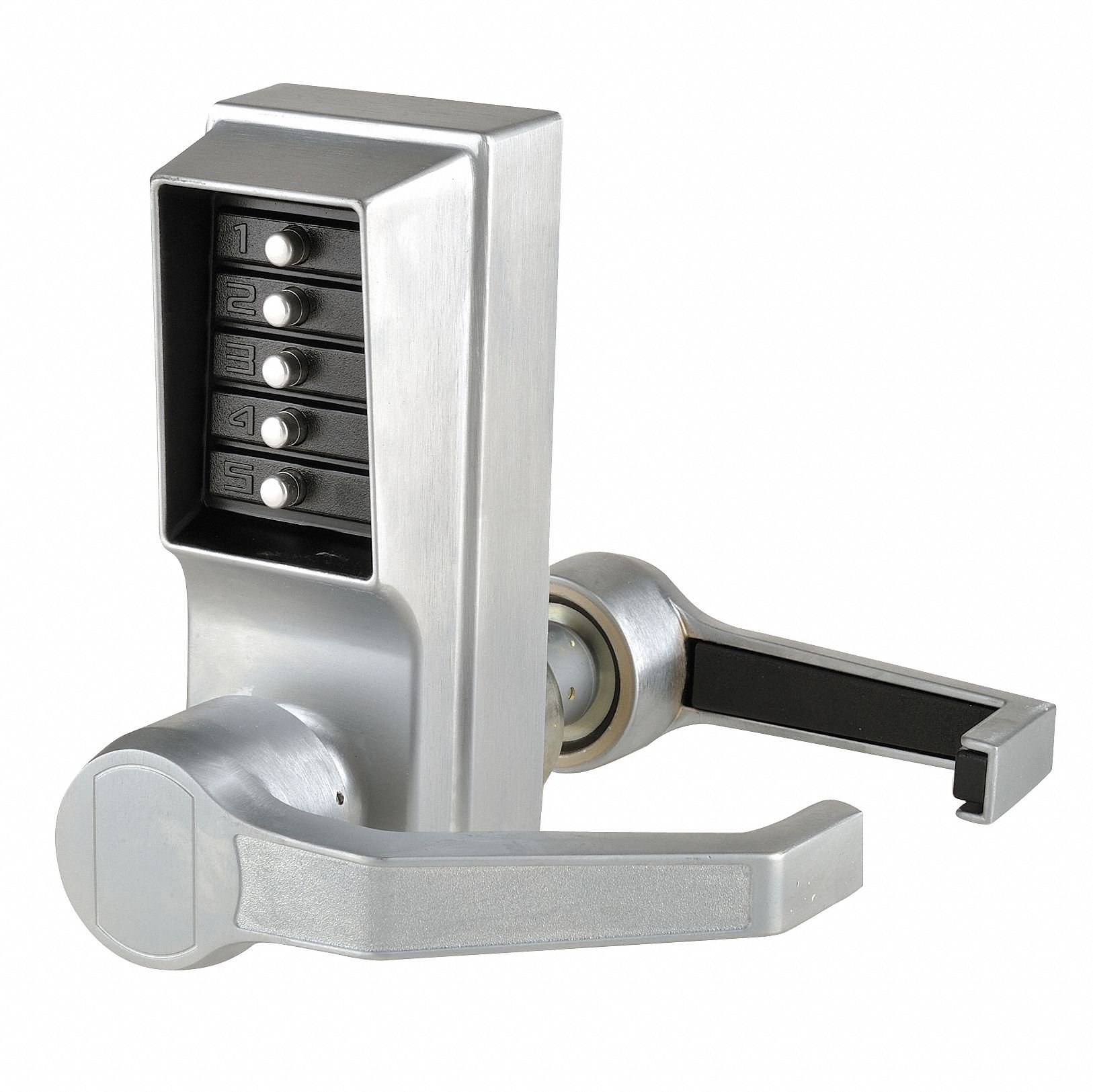Unlocking Security: The Rise of Push Button Gate Locks
Imagine approaching your gate, hands full of groceries, and effortlessly unlocking it with a simple code. No fumbling for keys, no vulnerability to pickpockets. This is the promise of push button gate locks, a rising star in access control technology. These keyless entry systems offer a blend of convenience and security, transforming how we interact with our property boundaries.
The world of gate security has evolved significantly. From simple latches to complex electronic systems, the focus has always been on balancing access with protection. Push button locks represent a key advancement in this evolution, providing a user-friendly interface combined with robust security features. They're not just about convenience; they're about taking control of your perimeter.
The precursor to the modern digital push button lock can be traced back to mechanical combination locks. These early systems relied on rotating dials to align specific numbers, granting access. The digital revolution transformed this concept, replacing mechanical components with electronic keypads and sophisticated locking mechanisms. This shift marked a significant improvement in both security and ease of use.
The importance of gate security cannot be overstated. A secure gate is the first line of defense against unauthorized entry, deterring potential intruders and protecting your property and loved ones. Push button locks contribute significantly to this security, offering a level of control that traditional key locks often lack. The ability to change codes easily, eliminate the risk of lost keys, and monitor access attempts makes them a powerful tool in safeguarding your premises.
One common concern with any electronic system is vulnerability to power outages. Many modern push button gate locks address this with battery backups and alternative access methods, ensuring that you're never locked out. Another consideration is the potential for code compromise. However, features like scrambled keypads and anti-tamper alarms mitigate this risk, making it difficult for unauthorized individuals to crack the code.
A push button gate lock is an electronic locking device operated by entering a numerical code on a keypad. This code activates the lock's mechanism, either retracting a bolt or releasing a latch, allowing the gate to open. A simple example: imagine a keypad with numbers 0-9. You enter a pre-programmed code, such as "1234," and the gate unlocks. Once closed, the gate automatically locks, requiring the code to be entered again for access.
Benefit 1: Enhanced Security. Unlike traditional keys that can be copied or lost, a push button lock provides a more secure access method. The code can be easily changed if compromised, ensuring ongoing protection.
Benefit 2: Keyless Convenience. No more fumbling for keys, especially when your hands are full. Quick and easy access via a simple code streamlines entry and exit.
Benefit 3: Improved Access Control. Grant temporary access codes to guests, service providers, or delivery personnel, revoking them as needed. This eliminates the need to distribute physical keys and enhances control over who can access your property.
Action Plan: 1. Assess your gate's compatibility with a push button lock. 2. Choose a lock that meets your security needs and budget. 3. Install the lock following the manufacturer's instructions or hire a professional. 4. Test the lock thoroughly and familiarize yourself with its features.
Advantages and Disadvantages of Push Button Gate Locks
| Advantages | Disadvantages |
|---|---|
| Keyless convenience | Potential for code forgetting |
| Enhanced security | Vulnerability to power outages (if not equipped with backup) |
| Improved access control | Initial cost higher than traditional locks |
Best Practice 1: Choose a weatherproof lock designed for outdoor use.
Best Practice 2: Install the keypad in a well-lit area to improve visibility.
Best Practice 3: Regularly change your access code to maintain security.
Best Practice 4: Check and replace batteries as needed, especially in locks without backup power.
Best Practice 5: Familiarize all users with the lock's operation and emergency access procedures.
FAQ 1: What happens if I forget my code? Most locks have a manual override or reset procedure. Refer to your lock's instructions.
FAQ 2: Are these locks weatherproof? Look for models specifically designed for outdoor use.
Tip: Use a code that is easy for you to remember but difficult for others to guess.
In conclusion, push button gate locks represent a significant leap forward in gate security. They offer a compelling combination of convenience, security, and control, empowering homeowners and businesses to manage access to their property effectively. While challenges such as power outages and code compromise exist, manufacturers have implemented solutions like battery backups and anti-tamper features to mitigate these risks. The evolution from mechanical combination locks to sophisticated digital systems underscores the constant drive for improved security and user-friendliness. As technology continues to advance, push-button locks will likely become even more integrated into our daily lives, playing a vital role in protecting our homes and businesses. Investing in a push button lock is investing in peace of mind, allowing you to enjoy the convenience of keyless entry while ensuring the safety of your property.
Awesome bloxburg house layouts under 100k
Decoding the allure of gray wall paint at home depot
Medicare part b prescription drug coverage explained














